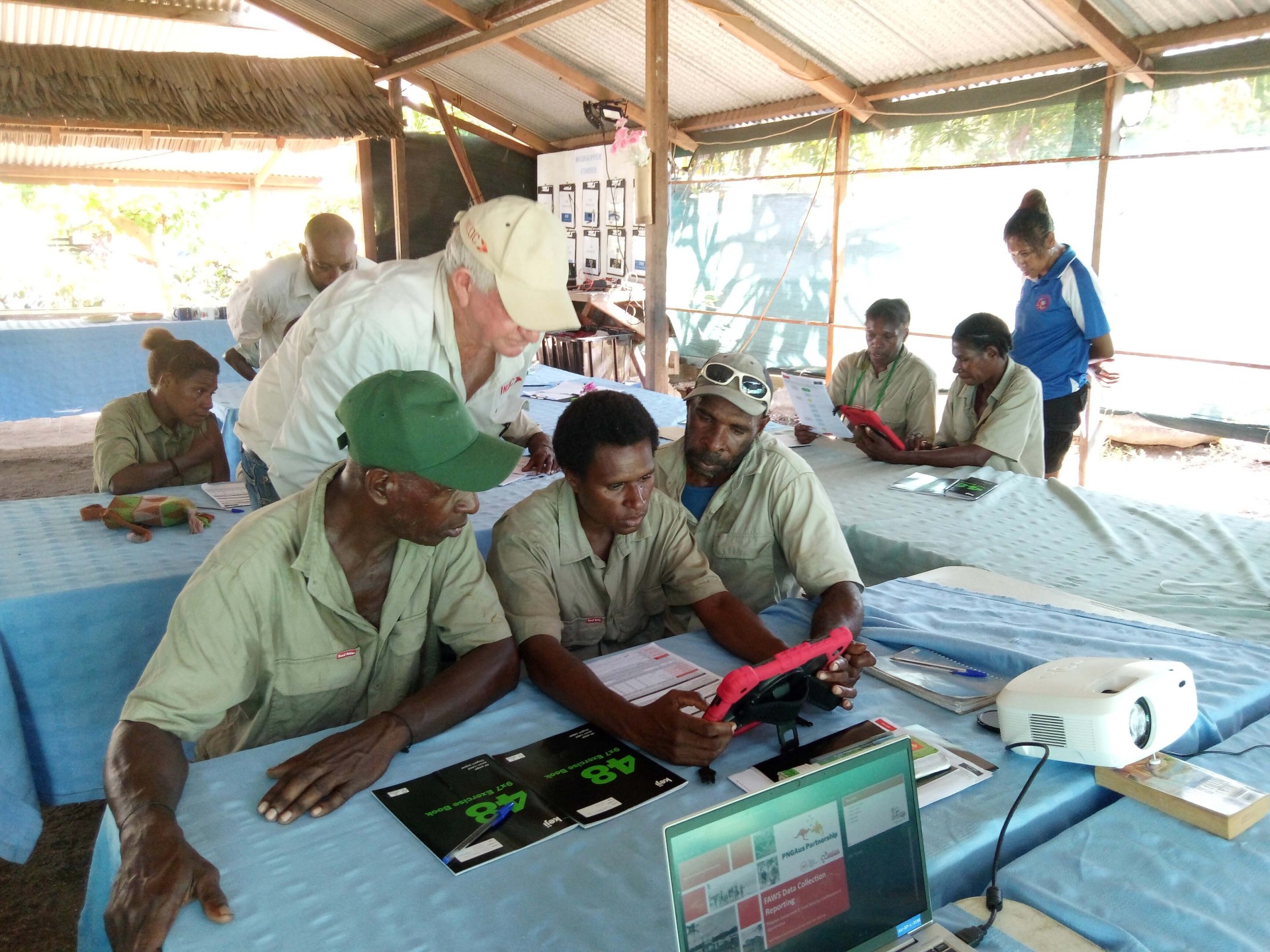Sixteen community rangers, including nine female rangers, from the South Fly District, recently participated in a two-day Food & Water Security (FAWS) data collection workshop on Paho Island, Western Province. The training was a collaboration between the Western Province Disaster Office and the South Fly Resilience Plan (SFRP) under the Papua New Guinea–Australia Partnership.
The community rangers serve in 40 Wards – including 14 treaty and 28 non-treaty villages in the Forecoast Kiwai Rural, Morehead Rural, Oriomo-Bituri Rural and Fly Kiwai Rural LLG’s. These areas are vulnerable to extreme weather patterns and their impacts on food and water security.
Australia’s programs under the PNG–Australia Partnership include support for monitoring and building resilience to climate-induced humanitarian events. The remoteness of communities in the South Fly District requires a collaborative approach between government and development partners to ensure all communities are reached. To achieve this, the government of Australia has been working closely with local and national government agencies to monitor, support and build resilience to emergency events.

Barbara Darima (community ranger) holding on to the paper-based tool during a practical session on the FAWS data collection workshop.
This training upskilled the Australian-funded community rangers on the revised Food and Water Security (FAWS) data collection tool. The FAWS tool enables improved real time monitoring and data collection by the South Fly District for the Western Province Disaster Office.
“Our office relies on up to date and reliable information to influence and inform us quickly so that decisions can be made in a timely manner when responding to disasters or emergencies. The rangers need to know how to efficiently assess, collect, collate and report data and information back to us. So, workshops such as this are vital for our rangers who are always in the communities,” says Joy Iwaneke from the South Fly District Disaster Office.
A feature of the training on the revised FAWS data collection tool was the use of tablets and mobile phones for the input and online submission of the information collated from the field. The rangers will be putting these newly acquired skills to use in the next couple of weeks, as they carry out FAWS data collection in several communities.
“I’ve been a ranger for 7 years, so I’m seen as an important part of my community, Buzi. Such workshops not only upskill us in our work but give us a sense of pride that we are doing something important for the community. The FAWS data collection workshop is vital for us to keep track of our food gardens supply and water,” shared Ranger Dangani Goralam.
This is one of many initiatives where Australia and PNG are partnering to drive economic growth, enhance stability and improve service delivery across Western Province, as part of the broader PNG–Australia Partnership.
For further information, including access to related materials, please contact the Australian High Commission media team: +675 7090 0100
